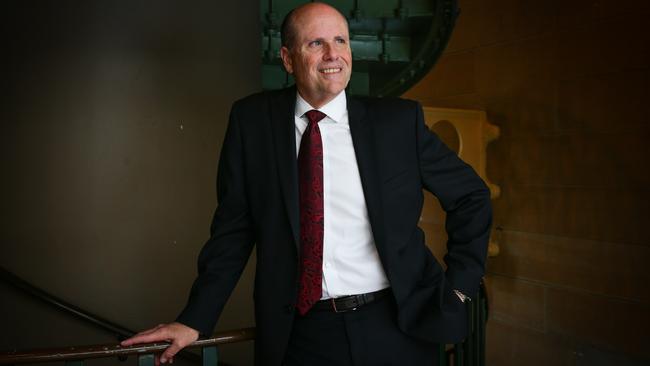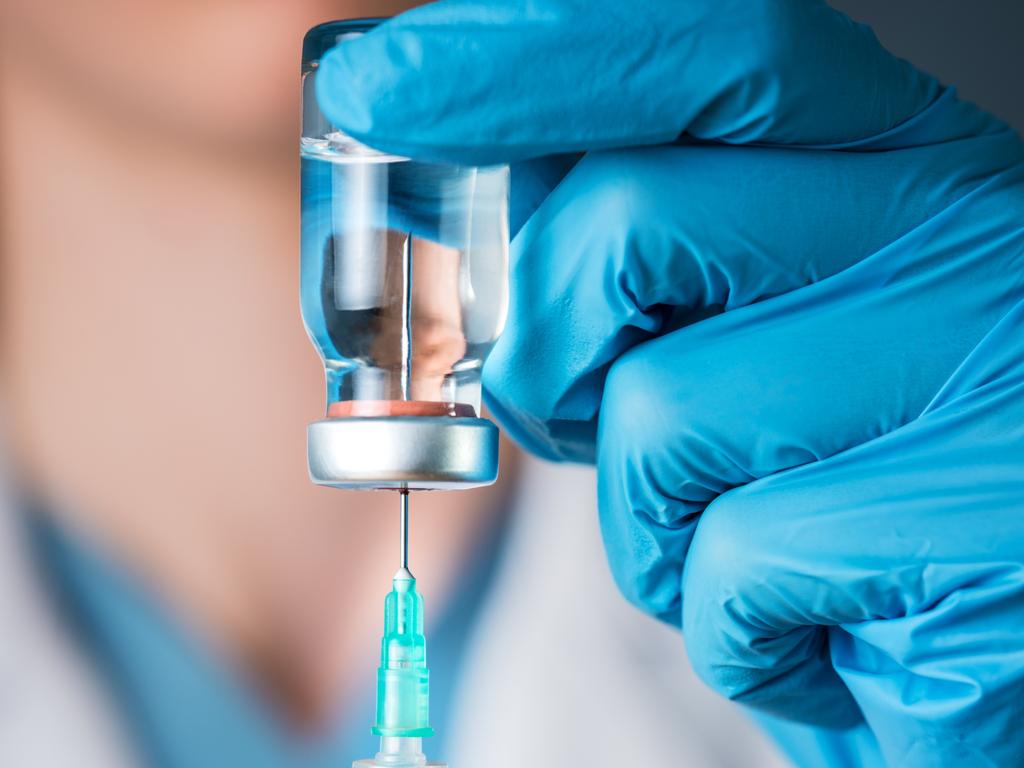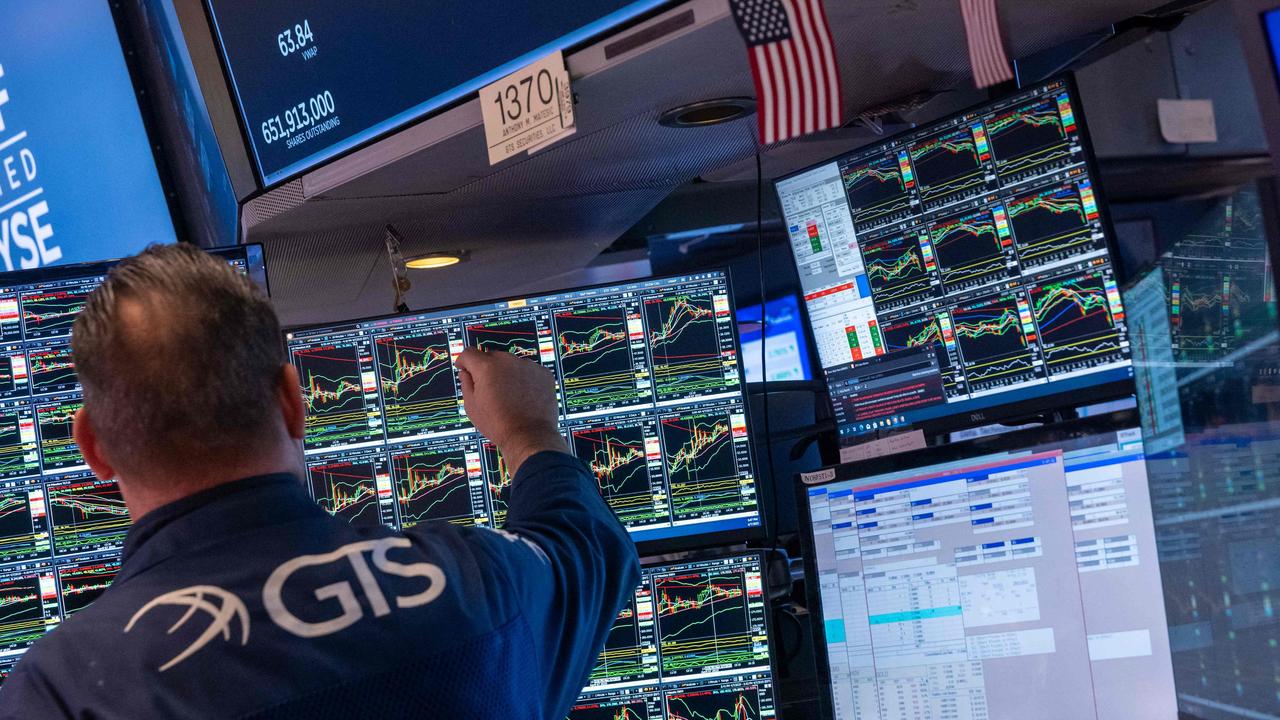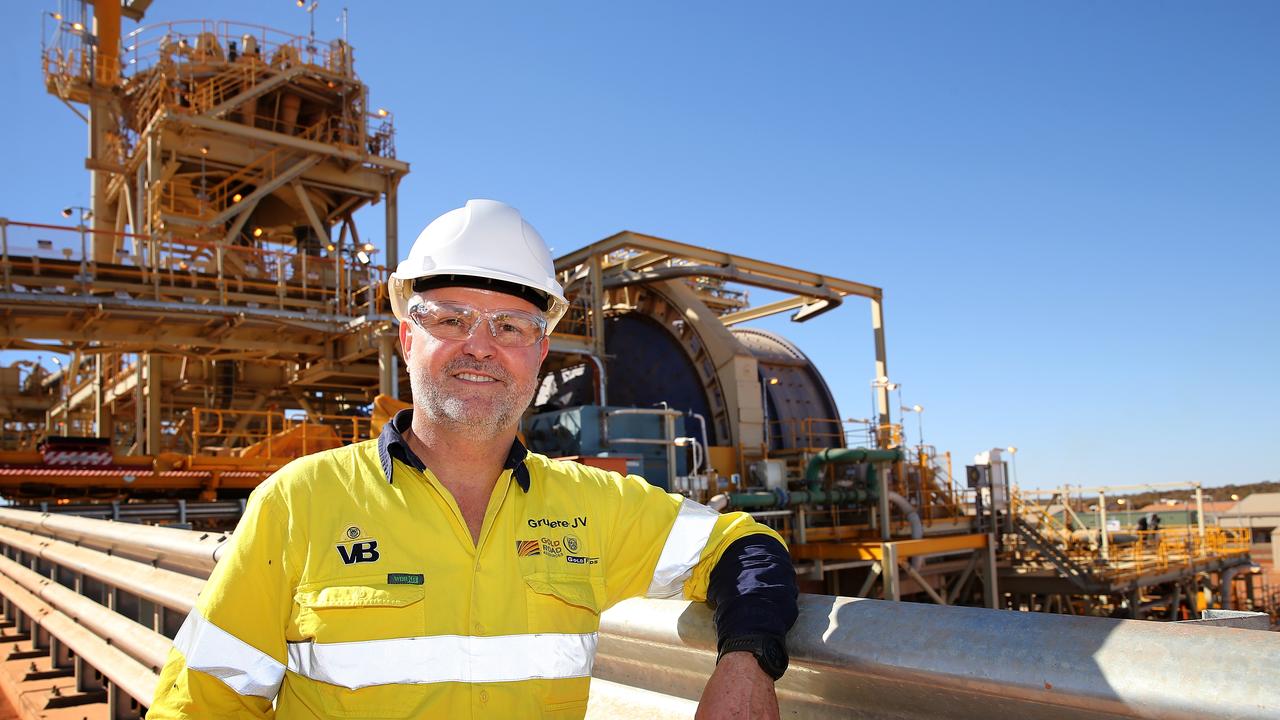CSL tightens guidance, warns COVID-19 pandemic still restricting plasma collections
Healthcare giant CSL still expects a COVID-19 vaccine to become available by the middle of next year despite the pausing of several high-profile trials.

Healthcare giant CSL still expects a COVID-19 vaccine to become available by the middle of next year despite the pausing of several high-profile trials.
CSL chief executive Paul Perreault said while there were “no guarantees”, he did not expect any delays in the arrival of a coronavirus vaccine, saying the halting of phase-three trials — the last step before regulatory approval and commercialisation — was normal in drug development to ensure safety and efficacy.
“There are so many vaccines under development that something will come through,” Mr Perreault said.
“Now, will it be the one that we are working on or will it be in Australia first? That’s another question. But somebody will have one that will work.
“Out of the close to 100 programs going on around the world, if we have five or six that make it, that will be awesome.”
The Morrison government is spending $1.7bn on securing two coronavirus vaccines — one candidate from AstraZeneca and Oxford University and another one CSL is developing with the University of Queensland.
CSL will produce the vaccines, which are undergoing clinical trials, with the first doses expected to become available from January.
But the Oxford University and AstraZeneca trials have been halted twice in the past month after two participants developed neurological illnesses after being injected with the experimental drug.
Mr Perreault said this was normal for the last stages of drug development. “Will there be something in Australia next year? I think we have a good shot at it,” he said.
“There are no guarantees like the rest of life, but I think we have got some good shots between AZ and the UQ vaccine.”
The upbeat forecast comes as CSL sharpened its guidance for 2021 amid expected strong demand for influenza vaccines and its plasma and recombinant therapies.
But the company cautioned that the pandemic was still restricting plasma collections.
For the 2021 financial year, CSL now expects a net profit of between $US2.17bn and $US2.26bn ($3bn-$3.15bn), a 3-8 per cent lift on its 2020 result.
CSL, the biggest listed company on the ASX, with a market capitalisation of $135.7bn, expects revenue growth in the range of 6-10 per cent over the year. Revenue over the 2020 financial year jumped 7.2 per cent to $US8.797bn.
Updating shareholders on research and development guidance, Mr Perreault said the company’s COVID-19 response, alongside new growth initiatives, would drive an uplift in investment towards the top end of its guidance range of 10-11 per cent of revenue.
While COVID-19 had affected its ability to collect plasma, Mr Perreault said the business was doing “everything it possibly can to ensure patient access to these important medicines”, as he revealed collections had picked up in recent weeks.
“We are still some way from the volume of plasma collected this time last year. However, over the first quarter of this financial year, as each week passes our plasma collections have been growing,” he said at the company’s annual general meeting.
The strong demand for influenza vaccines, meanwhile, had been driven in part by governments not wanting citizens to contract both influenza and COVID-19 at the same time, Mr Perreault said.
Asked about the appointment of AstraZeneca CEO Pascal Soriot to its board, CSL chair Brian McNamee said areas of overlap between the two companies were “very minor” and if there were any areas of sensitivity Mr Soriot would recuse himself. “That would be a rare exception given that we operate and compete in different markets,” Mr McNamee said.
“And certainly with regard to the vaccine that AstraZeneca is working globally and very diligently with Oxford University’s original work, we’re their regional partner and we work closely with AstraZeneca to try to provide this vaccine to the Australian market and really that’s not a competitive but a collaborative situation.”
The UK-based Mr Soriot said he was “proud and excited” to join the CSL board.
Commenting on CSL’s role in delivering a COVID-19 vaccine, Mr McNamee said it was the company’s intention to manufacture the AstraZeneca vaccine and University of Queensland vaccine in its Melbourne-based plant if both were successful.
“To increase capacity we are also evaluating other sites, one in Australia, particularly for the University of Queensland vaccine,” he said. “We have a strong intention to both manufacture locally for our local and regional markets and also collaborate where it makes sense for us to expand capacity.”
CSL’s net profit rose 9.6 per cent to $US2.102bn in the 12 months to June 30 following “solid growth” in its immunoglobulin portfolio and its Seqirus influenza vaccine business.
Plasma donations fell 5 per cent over the year despite CSL opening 40 new donation centres in the US, as the pandemic hindered collections.





To join the conversation, please log in. Don't have an account? Register
Join the conversation, you are commenting as Logout